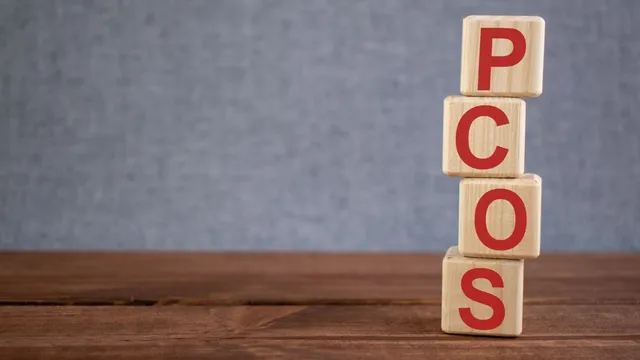- By Bornika Das
- Fri, 30 May 2025 08:25 PM (IST)
- Source:JND
Polycystic Ovary Syndrome (PCOS) is one of the most common hormonal disorders affecting women of reproductive age, yet it remains widely misunderstood. For many, the first recommendation after a diagnosis is often to just lose weight. While this advice may come from a well-meaning place, it drastically oversimplifies the condition and overlooks the many physical, emotional, and reproductive challenges women with PCOS face. Weight gain is only one of several symptoms, others include irregular periods, acne, excessive hair growth and fertility issues. The reality is that PCOS is a multifaceted endocrine disorder driven by a complex interplay of hormonal imbalances, insulin resistance, genetic predisposition and environmental influences.
The widespread hormonal disorder, which affects 1 in 10 women of reproductive age, is accompanied by several reproductive, metabolic and psychological issues. Yes, managing weight can help. But to truly support a woman with PCOS, we need to look beyond the weighing scale. In conversation with The Daily Jagran, Dr Rohani Nayak, Fertility Specialist, Birla Fertility & IVF, Bhubaneswar, shares how managing PCOS is not just weight loss but a more holistic and compassionate approach.
Understanding PCOS
PCOS is driven by a combination of insulin resistance, hormone imbalances, genetics, and environmental factors. Dr Rohani Nayak states, “Usually, they have a high androgen (male hormones) and a significantly low oestrogen level.” The hormonal changes result in irregular menstrual periods, acne, unwanted hair growth, and in 70-80 per cent of women, infertility.
The Connection Between Weight And PCOS
Weight gain is also a key symptom of the hormonal condition. And in some cases, losing even 5 per cent of weight can bring the androgen level back to the normal range, thereby improving overall symptoms. However, weight loss does not eliminate the root cause of PCOS.
Dr Rohani Nayak explains, “Moreover, losing weight for those battling PCOS is not as easy it seems. Hormonal imbalance and insulin resistance can affect metabolism and fat storage. Additionally, PCOS can disrupt appetite regulation and lead to sleep disturbances, making it challenging to shed kilos.”
ALSO READ: PCOS And Fertility: Doctor Explains What Women Need To Know Before It's Too Late
It might also be surprising to learn that not all women who suffer from PCOS gain weight. A significant number of women are affected by ‘lean PCOS’. These women do not carry excess weight but still show all the classic signs of PCOS. So, the advice to “just lose the weight” does not apply to them. “They need to make specific dietary changes and regularly take hormone-regulating medications to manage the symptoms,” Dr Rohani Nayak states.
With or without weight gain, fertility still remains a major concern for most women diagnosed with PCOS. Natural conception is not always possible due to irregular menstrual cycle. She adds, “Hence, women need to take regular medication such as oral contraceptives and others, to regulate their menstrual cycle and improve fertility when trying to conceive.” In more severe cases, assisted reproductive techniques like IVF may become necessary. Weight management may improve the odds, but it does not guarantee pregnancy.

Healthy Lifestyle To Manage PCOS (Image Credits: Canva)
ALSO READ: How PCOS, Thyroid And Menopause Can Cause Major Health Issues In Women: Know From A Doctor
Holistic Tips To Manage PCOS
Effective PCOS management requires a holistic approach, involving:
Medical support to correct hormonal imbalances
Personalised diet and lifestyle strategies
Mental health counselling
Fertility planning and, if necessary, ART options
PCOS is a lifelong condition that affects every woman differently. Addressing only one part of it can leave the rest of the puzzle unsolved. What’s needed instead is a complete, compassionate, and personalised approach to care.

